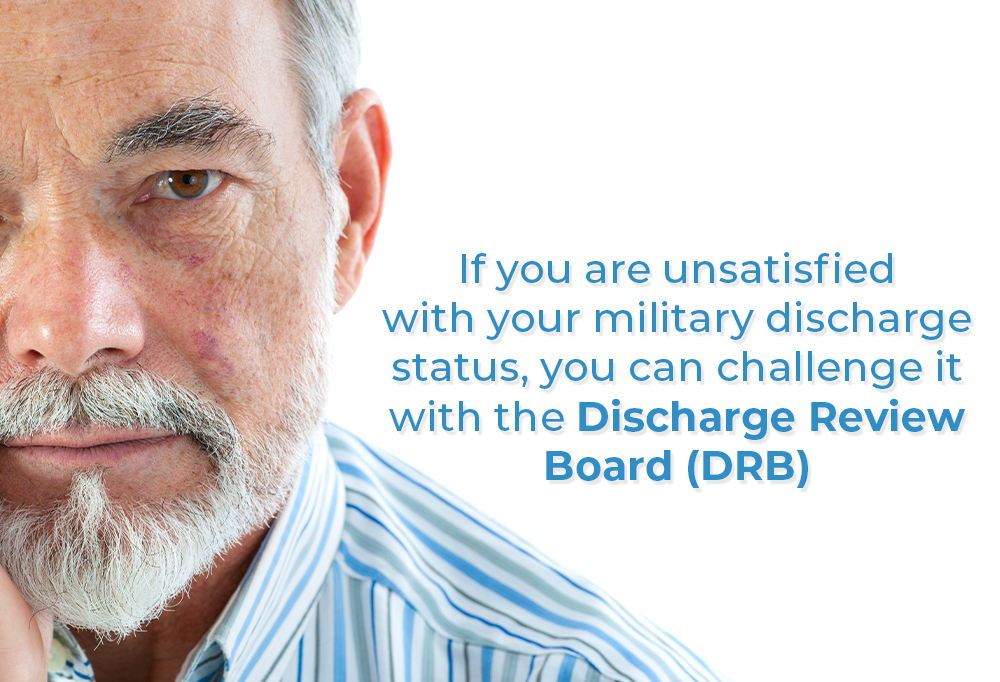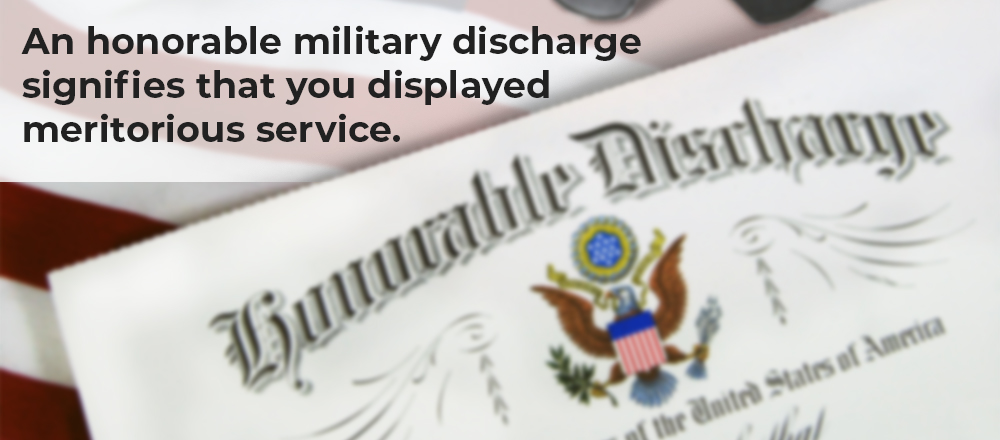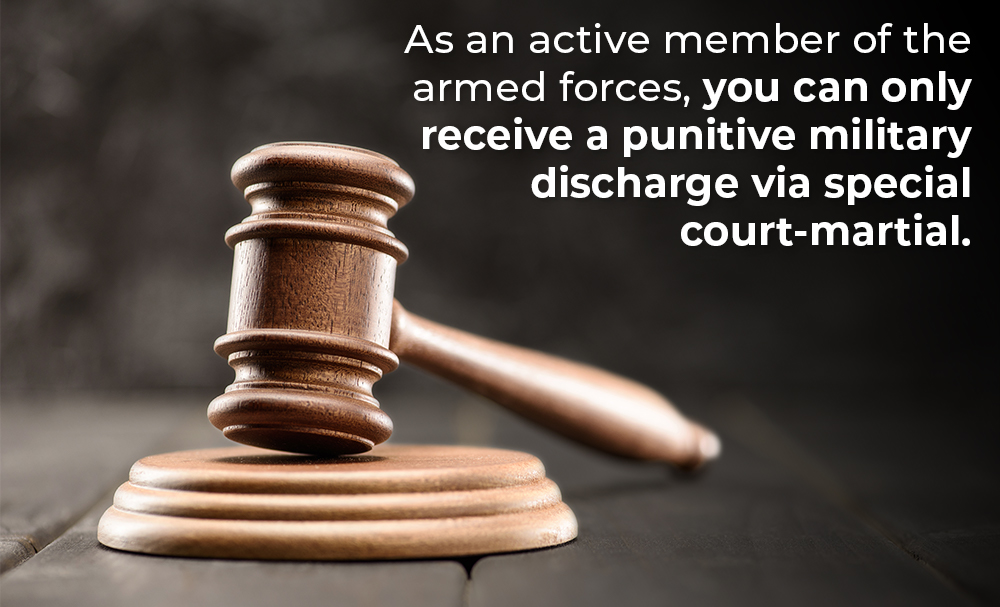To be eligible for disability compensation through the United States Department of Veterans Affairs, a veteran’s discharge characterization must be under conditions other than dishonorable. This does not mean that an honorable discharge is required for receipt of VA benefits—a general discharge, or a discharge under honorable conditions, is acceptable as well.
But what happens if a veteran does not meet this criterion and needs a military discharge upgrade? Is there a way that he or she can still receive benefits? As with many VA questions, the answer is maybe, depending on your military records and reasoning.
What is an Other than Honorable Discharge?
Other than honorable discharge (OTH discharge), or a bad paper, can present unique challenges for veterans. While it’s not impossible to obtain an upgraded discharge and VA benefits under this classification, it’s not the simplest process since there is usually more than one mitigating factor.
If you were discharged from active duty military service or other military duties under an OTH character of service, there are several avenues you can take to potentially get discharge upgrades and obtain benefits.

What Are The Different Types of Discharge?
While this blog post will focus on other than honorable discharge, it’s important to understand the various types of discharge status that service members might face.
When a service member is discharged, the military assigns what is called a “character of service” on their DD-214. This system applies to all branches of the armed forces. This character of service may appear as the following:
- Honorable Discharge
- General Discharge
- Medical Discharge
- Other than Honorable Discharge
- Bad Conduct Discharge
- Dishonorable Discharge
Honorable Discharge
An honorable discharge is the top level of military discharge. It’s also the most common. Veterans with this character of service are eligible for all benefits through the VA, such as disability pay, education benefits, and healthcare benefits. Veterans must have an honorable discharge to receive education benefits through the Post-9/11 GI Bill or Montgomery GI Bill.
General Discharge
Veterans with a general discharge, or general discharge under honorable conditions, are also entitled to all the benefits under the VA. This character means that a service member may not have met all of the standards of honorable discharge, yet their military service met standards of adequacy. Individuals with general discharge may have some disciplinary marks, though these incidents are usually minor.
Other Than Honorable Discharge
Other than honorable discharge, or OTH discharge, falls under the umbrella of undesirable discharge. This character or service is also called a “bad paper.” However, individuals with this character or service may still qualify for certain VA benefits. Other than honorable discharge is a type of administrative discharge. It is not determined by a court-martial. We will discuss the process of obtaining disability compensation and other veterans benefits with OTH discharge below.
Bad Conduct Discharge
Bad conduct discharge is a punitive discharge, so these situations typically involve some type of discipline. Service members who receive this type of discharge may be barred from reenlistment. They may also serve time in a military prison. A special court-martial determines this service character through a criminal trial.
Dishonorable Discharge
Service members who commit serious crimes while in the military may be discharged under dishonorable conditions. A court-martial determines this type of discharge as well. Dishonorable discharge makes a veteran ineligible for all VA benefits.
A character of service determination remains on your military record unless it goes to a discharge review board for correction and performs a records review. However, this board may only modify, correct, or do discharge changes not imposed by a court-martial.

How Can You Qualify for Disability Benefits With OTH Discharge?
When applying for VA disability benefits, VA health care, education benefits, and other types of VA benefits, former military members have several options for qualifying for other than honorable discharge benefits.
If you are being denied with your OTH discharge status, one option to consider for a veteran with an other than honorable discharge is to apply for a discharge upgrade through the Discharge Review Board. You may also appeal decisions from a discharge review board by submitting supporting documents and medical evidence if appropriate.
The discharge review process is separate outside the VA. If a discharge is upgraded through the Discharge Review Board DRB, the VA will consider the upgrade in determining eligibility for benefits, but the discharge upgrade does not automatically remove the bar to VA benefits.
Why won’t VA pay my disability benefits?
Under the law, benefits are not payable to a conscientious objector who refused to perform military duty, wear the uniform, or comply with military authorities. Nor are benefits payable to a veteran who was discharged by general court-martial, who resigned as an officer for the good of the service, or who deserted.
Benefits are also not payable to a veteran who was absent without official leave (AWOL) for a period of at least 180 days.
This bar for an extended period of AWOL may be removed if there is a finding of compelling circumstances which could excuse the absence such as the veteran providing supporting documents that may explain your actions that led to a less than honorable discharge.
This could include traumatic events that led to posttraumatic stress disorder or other mental health issues such as injuries sustained in combat situations, military sexual trauma (MST), or others.

How does the Discharge Review Process work?
In making its determination as to compelling circumstances, the VA is required by law to consider several factors, including the quality and length of the veteran’s service, exclusive of the period of absence.
The review board will also go over the reasons given by the veteran for going AWOL (taking into consideration the veteran’s age, cultural background, educational level, and judgmental maturity as well as hardship or suffering incurred during overseas service or as a result of combat wounds or other service-incurred disability); and whether a valid legal defense exists for the absence which would have precluded a conviction for AWOL, i.e., if the absence would not lead to a conviction of an offense under the Uniform Code of Military Justice.
Like we referenced earlier, another consideration in determining whether an other than honorable discharge is a bar to benefits and the vet deserves a discharge upgrade is whether the person was insane or mentally unwell at the time of committing the offense for which the veteran received the discharge. This is especially common when dealing with veterans who are suffering from post traumatic stress disorder.
For purposes of the VA, an insane person is one who, while not mentally defective or constitutionally psychopathic exhibits, due to disease, a more or less prolonged deviation from his normal method of behavior, or who interferes with the peace of society. Insanity would remove the bar to benefits.
One other important point to know with regard to the character of discharge is that VA can grant benefits for an injury or disability which occurred during a period of honorable service even if the veteran later has a period of dishonorable service. This could include traumatic brain injuries which notoriously lead to a whole slew of mental issues and physical symptoms too.
Does Hill and Ponton help with Discharge Upgrades?
Unfortunately not. We at Hill and Ponton do not work on discharge upgrade appeals. We focus primarily on appealing unfavorable or incorrect VA disability benefits for service members. To upgrade your discharge, you will need to follow the steps outlined by the VA.




